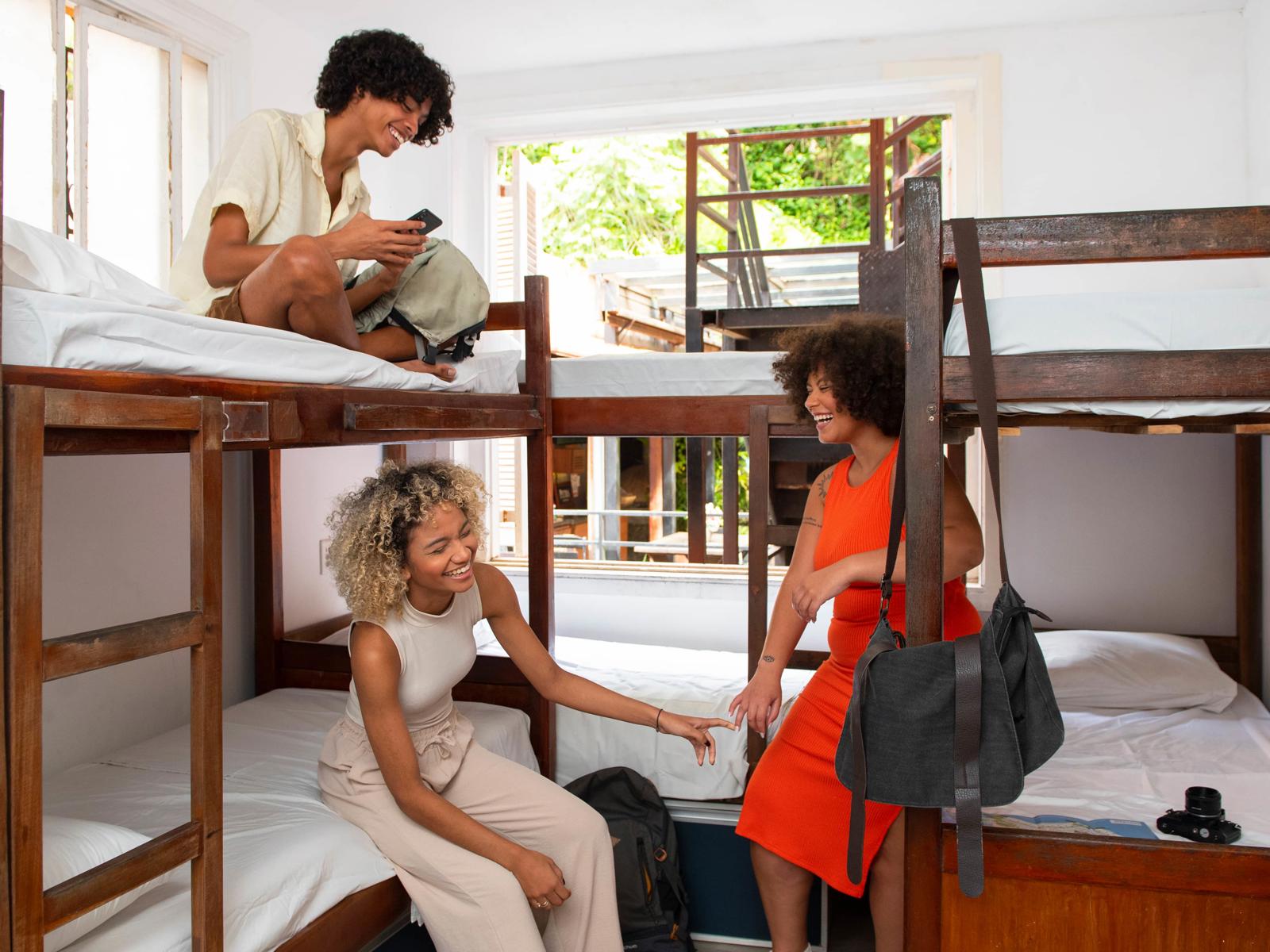Yes, many student accommodations in Malta come furnished. This is convenient for international students who may not want to purchase furniture for a temporary stay.
Living in Malta: Understanding accommodation landscape

Malta offers a unique blend of history, culture, and education. For international students, the neighbourhood you choose will affect your studies, social life and overall well-being. Leaving neighbourhoods aside, it’s crucial to make your rental objectives compatible with the chosen locality. If you plan to bring along your family then a house with a large garden, for example, could be the best option. On the other hand, if you are looking for a dynamic lifestyle with plenty of entertainment venues, a neighbourhood in the city centre might suit your requirements better.
When searching for international student accommodation in Malta, it’s always advisable to consult a reliable and well-established real estate company. A team of professionals will assist you throughout the buying procedure, taking you through the various neighbourhoods until the ideal property is found to fulfil your requirements.
Want to study in Malta?
Popular neighbourhoods in Malta for international students
1. Sliema
- Easy availability of amenities: Sliema is a busy coastal town with plenty of amenities. Supermarkets, cafes, gyms and shopping centres are all within walking distance. Having everything you need at your doorstep is a big plus, especially for students juggling studies and daily life.
- Good Public Transport: Public transport in Sliema is good and reliable. Buses run regularly to main areas, including the University of Malta and Valletta. You can get to your lectures and explore the island with ease.
2. St. Julian's
- Interesting Nightlife: St. Julian’s has a fantastic nightlife. There are loads of bars, clubs and restaurants. For students this means plenty of opportunities to socialise and chill after a day of studying. The opportunity to enjoy the night life can help you strike a balance between academic and social life.
- Close to Language Schools: For international students looking to improve their English, St. Julian’s has several language schools. The schools being in proximity is convenient for those who want to improve and advance their skills in different ways.
3. Msida
- Close to education institutions in Malta: Msida is close to most of the educational institutions in Malta, so it’s perfect for students. The short commute means more time to study and be part of campus life. Living close to your educational institution also means you can attend early-morning lectures or late-night study sessions.
- Affordable Accommodation: Compared to other popular areas, Msida has more affordable options. This is especially good for students on a budget. Lower rental costs means that you can allocate more funds to other important student expenses like books, food and leisure activities.
4. Gzira
- Centrally located: Gzira is in the middle of the Maltese island, so it’s a great place to be in. Being in the middle means you can easily get to different parts of the island, whether for study or leisure. The location helps you balance your academic commitments with the enjoyment of exploring Malta’s cultural heritage.
- Waterfront Views: Many apartments in Gzira have outstanding waterfront views. Living by the water is known for being refreshing and naturally peaceful, so it makes for a great environment to study and relax.
5. Valletta
- Historical significance: Valletta is a city with a rich history. Living here means being surrounded by a UNESCO World Heritage site, historical buildings, museums and cultural landmarks. For students this means a unique blend of education and history to enhance your studies and have a memorable stay in Malta.
- Cultural activities: Valletta is a hotbed of cultural activities, including theatre productions, festivals and art exhibitions. These are great opportunities for students to get involved in Maltese culture, broaden their horizons and have a life beyond studies.
Places to Avoid for Student Accommodation in Malta
1. Marsa
- High Crime Rate: Marsa has a reputation for having a higher crime rate compared to other areas in Malta. Safety is a top priority for students and living in an area with higher crime can be stressful and potentially dangerous. Here’s a safety guide.
- Industrial area: Marsa is predominantly an industrial area. This means it lacks the residential vibe and amenities that students typically look for. The industrial nature of Marsa can also lead to noise and pollution, making it a less desirable place to live.
2. Qormi
- Limited Public Transport: Public transport in Qormi is not as reliable or frequent compared to other regions in Malta. This can make commuting to universities and other key areas challenging. The inconvenience of infrequent public transport can add unnecessary stress to your daily routine.
- Fewer Student-Friendly Amenities: Qormi has fewer amenities that cater to students, such as cafes, libraries and study spaces. The lack of such facilities can make it harder for students to find suitable places to study and relax outside of their accommodation.
3. Birzebbuga
- Distance from Educational Institutions: Birzebbuga is in the south of Malta, far from most educational institutions. The long journey can be exhausting and time-consuming and will affect your study time and student life.
- Industrial Area: Like Marsa, Birzebbuga is also an industrial area. This can cause noise and air pollution which is not suitable for a student living environment.
4. Hamrun
- Congested Area: Hamrun is known for being congested and has heavy traffic. The daily commute can be stressful and time-consuming. The crowded environment is not ideal for students looking for a quiet place to study and live.
- No Green Spaces: Hamrun has no green spaces and parks, which are important for relaxation and outdoor activities. The lack of such spaces makes it hard to find a quiet spot to unwind and get away from the urban jungle.
5. Bugibba
- Tourist Area: Bugibba is a tourist area, which means noise and crowds, especially during peak tourist season. This environment is not ideal for students who need a quiet place to study.
- High Cost of Living: Being a tourist area, the cost of living in Bugibba is higher than other areas. This includes higher rents and prices for basic amenities which might not fit a student's budget.
When choosing a neighbourhood is important for international students in Malta. Some areas have great amenities and convenience, while others are not ideal for various reasons like safety, transport and cost of living. Make sure to consider these when looking for your student accommodation in Malta.
Living and learning with GBS Malta

GBS Malta provides excellent support for international students. We offer accommodation support to students and the residing campus is close to the main campus. Our motive is to ensure that you find a place that suits your needs. With GBS Malta, students receive guidance not only on living in Malta but also on maximising their stay and learning.
GBS Malta also offers a range of courses including Foundation Degree, bachelor’s and master’s in business management and information technology. Our courses are industry-led and designed to increase employability and career progression. We specialise in formative higher education experiences that help you level up your career — with personal and professional development. We’ve invested in an optimal learning environment with expert teaching and support, flexible study options and modern facilities across our campus.
If you are looking to join GBS Malta, reach out to our support team for help & adapt quickly.
Frequently Asked Questions about international student accommodation
1. Is it easy to find furnished accommodation in Malta?
2. How early should I start looking for accommodation?
Start looking at least three months before your arrival. Early planning gives you a better chance of finding a place that meets your needs and budget.
3. Are utilities included in the rent?
It depends on the landlord. Some rentals include utilities in the rent, while others do not. Always confirm before signing a lease to avoid unexpected costs.
4. What documents are needed to rent a place in Malta?
You typically need a passport, proof of enrolment, and sometimes a reference. Having these documents ready can speed up the rental process.
5. Is public transport reliable in Malta?
Public transport is generally reliable, especially in popular student areas. Buses are the main form of public transport, and they connect most parts of the island.



